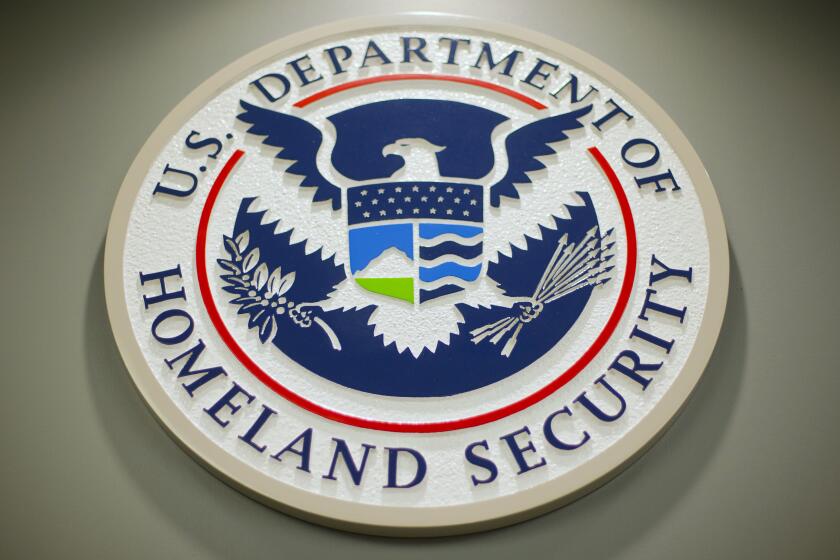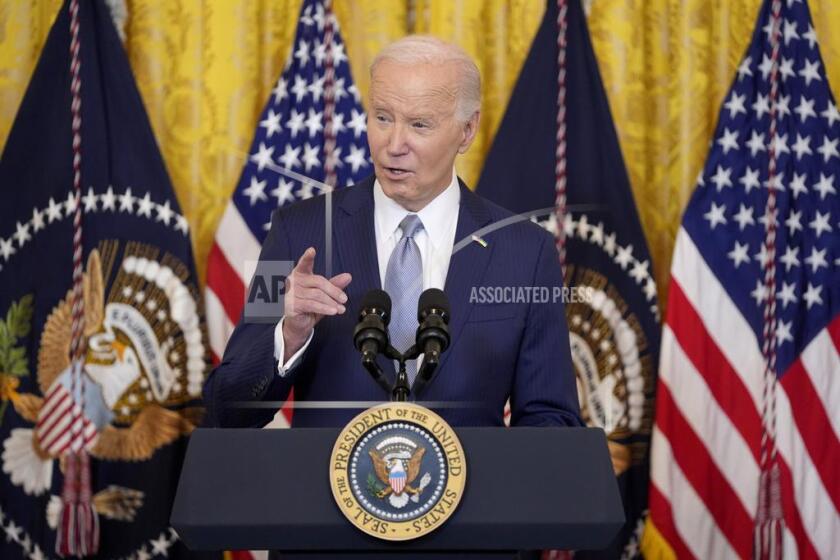INS Policy on Detaining Children Rejected by U.S. Appellate Court : Immigration: Ruling says minors’ rights are violated by denying them release to anyone but an adult relative before deportation hearings.
The due process rights of children who are suspected illegal immigrants are violated by a widely criticized government policy of refusing to release them to anyone but an adult relative pending deportation hearings, a federal appeals court ruled on Friday.
The ruling by the U.S. 9th Circuit Court of Appeals affects thousands of children who, the Center for Human Rights and Constitutional Law believes, are held in detention centers in California, Arizona, Nevada, and Hawaii.
The Center for Human Rights filed suit in 1985 against the Immigration and Naturalization Service seeking to stop the blanket detention of children who are suspected illegal immigrants without a parent or guardian to care for them.
U.S. District Judge Robert Kelleher blocked the policy, but was reversed by a divided federal appellate panel. The court, however, agreed to rehear the case, and in Thursday’s 7-4 opinion affirmed Kelleher’s initial ruling.
Judge Mary Schroeder, writing for the majority, said protection from being detained without due process extends to the children.
The children “posed no apparent risk to the community,” and their presence at their hearings “could be ensured by responsible individuals,” Schroeder said.
In a concurring opinion, Judge William Norris said the INS policy “not only violates due process, but does so flagrantly.”
Further, because the INS lacks expertise in child welfare issues, it is not in a position to determine that the youngsters are in less danger detained without evidence than they would be if they were released.
The majority opinion also rejected the INS argument that the policy protects the agency from lawsuits. Rather, the court ruled that “maintaining a special custodial relationship” exposes the INS to greater liability.
Dissenting Judge J. Clifford Wallace, who had written the appeals court panel decision supporting the policy, said the majority was wrong to characterize the regulation as “a blanket detention policy.”
“The regulation does not bar the release of all alien juveniles, but merely those who do not have an identifiable parent, legal guardian or adult relative,” Wallace said.
The policy has been criticized by Amnesty International, the Lawyers’ Committee for Human Rights, the International Human Rights Law Group and Defense for Children International.
“Detention is just inimical to the well-being of children. It severely damages not only their physical well-being but their mental health,” said Peter Schey, executive director of the Center for Human Rights.
About 85% of all children detained as suspected illegal immigrants in the United States are held in California, Hawaii, Arizona and Nevada, Schey said.
Children suspected of being in the country illegally are held an average of several weeks until a deportation hearing is scheduled, Schey said.
The INS “in essence was holding these children as bait to force the surrender of the parents,” Schey said.
However, many fled their native countries unaccompanied and came to the United States seeking political asylum, Schey said.
“They come to the United States to find refuge (and) instead they are caged and shackled and placed in isolated facilities. It’s a very traumatic issue for these children,” Schey said.
The suit originally dealt also with the treatment of children in the detention centers. That aspect was settled in 1988 when the INS agreed not to hold children with unrelated adults and to provide them with some education, Schey said.
“However, we continue to receive complaints of egregious violations of human rights of children in detention centers, including physical abuse and placement in isolation,” Schey said.
“We hope that this decision will encourage the INS to implement rational and humane regulations regarding the treatment of detained minors,” he said.
More to Read
Sign up for Essential California
The most important California stories and recommendations in your inbox every morning.
You may occasionally receive promotional content from the Los Angeles Times.






